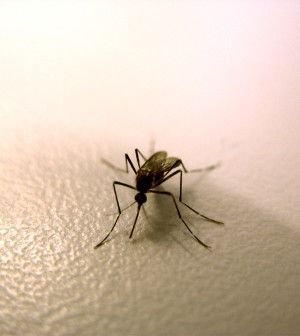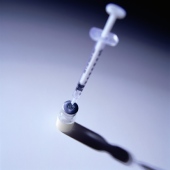- 8 Ways to Increase Dopamine Naturally
- 7 Best Breads for Maintaining Stable Blood Sugar
- Gelatin vs. Collagen: Which is Best for Skin, Nails, and Joints?
- The Long-Term Effects of Daily Turmeric Supplements on Liver Health
- Could Your Grocery Store Meat Be Causing Recurring UTIs?
- Are You Making This Expensive Thermostat Error This Winter?
- Recognizing the Signs of Hypothyroidism
- 10 Strategies to Overcome Insomnia
- Could Artificial Sweeteners Be Aging the Brain Faster?
- Techniques for Soothing Your Nervous System
More Evidence That HPV Vaccine Might Lower Cervical Cancer Risk


Just a few years after its introduction, a human papillomavirus (HPV) vaccine has reduced the risk of precancerous cervical lesions among young women in Denmark, a new study finds.
According to the U.S. National Cancer Institute, infections with HPV “cause virtually all cervical cancers.” Two HPV vaccines, Gardasil and Cervarix, have been approved for use in the United States and are currently recommended for use in girls and boys starting at ages 11 and 12.
While it’s too soon to say for sure that HPV vaccination can lower cervical cancer risk, the Danish study offers more evidence that it might.
The study, led by Birgitte Baldur-Felskov of the Danish Cancer Society Research Center in Copenhagen, examined the impact of the Gardasil HPV vaccine, which protects against four strains of the virus known to raise the risk for cervical cancer.
The vaccine was approved in Denmark in 2006 and then became part of the free general childhood vaccination program for girls. The vaccine is also available for a fee to girls and women and to boys and men not covered by the program.
In the study, Baldur-Felskov and colleagues looked at HPV vaccination data from 2006 to 2012 for all girls and women born in Denmark between 1989 and 1999, as well as how many of them were diagnosed with cervical lesions.
Those who received HPV vaccination had a much lower risk for these precancerous lesions compared to those who weren’t vaccinated, the researchers said.
The investigators also found no cervical lesions among girls born between 1997 and 1999, according to the study which was published Feb. 19 in the Journal of the National Cancer Institute.
“In conclusion, our results show that vaccination with the [four-strain] HPV vaccine is already effective in reducing the risk for cervical precursor lesions at population level among young women in Denmark,” the researchers concluded.
Two experts in the United States welcomed the findings.
“Studies such as this one continue to support the effectiveness of the HPV vaccine in preventing cervical lesions which lead to cervical cancer,” said Dr. Jennifer Wu, an obstetrician/gynecologist at Lenox Hill Hospital in New York City.
Dr. Eva Chalas, chief of gynecologic oncology at Winthrop-University Hospital in Mineola, N.Y., agreed. She called the new research “yet another study which underscores the value of HPV vaccination of young women in preventing precancerous lesions of the cervix.”
However, uptake of the HPV vaccine has been low in the United States, she noted. “The overwhelming majority of women are still not getting vaccinated in this country,” Chalas said. “In addition, less than 10 percent of the boys are getting vaccinated. Since the virus is sexually transmitted, protection of women and men must be strongly encouraged, and is of greatest benefit before they become sexually active.”
More information
The U.S. National Cancer Institute has more about HPV vaccines.
Source: HealthDay
Copyright © 2026 HealthDay. All rights reserved.










